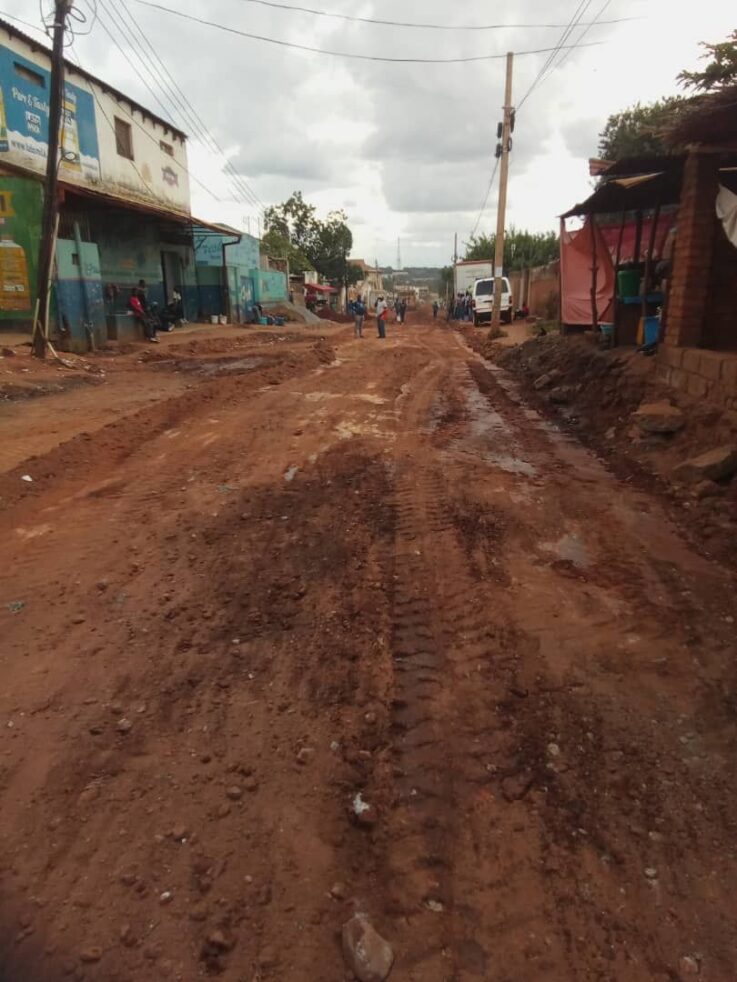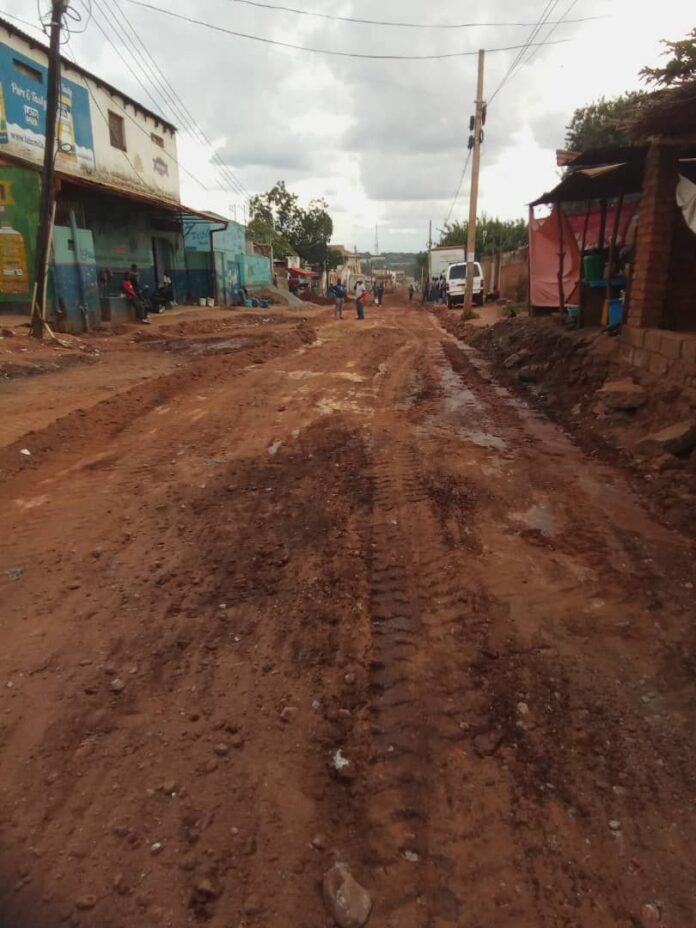By Burnett Munthali
The Malawi Government has commenced construction work on a long-neglected backyard road located in Bwalo la Njobvu, Area 2, Lilongwe.
The road, which runs behind the line of shops in this bustling part of the city, has for years remained in a deplorable condition, posing challenges to both motorists and pedestrians.
For decades, residents and business owners operating in the area have decried the poor state of the road, which worsens especially during the rainy season due to flooding, potholes, and muddy terrain.
Several attempts to draw the attention of authorities to the deteriorating infrastructure yielded minimal results, leading to widespread frustration and concerns over accessibility and hygiene.
Now, with construction equipment deployed and groundwork visibly underway, a sense of cautious optimism is spreading among the local population.

Shop owners, who have long struggled with reduced customer traffic due to the road’s impassability, have expressed hope that the development will rejuvenate economic activity in the area.
Local vendors and commuters, who rely on the road daily for their movements, see this initiative as a step toward improving their quality of life and restoring dignity to a community often overlooked in city development plans.
Community leaders in Bwalo la Njobvu have applauded the government’s decision, describing it as timely and reflective of growing responsiveness to grassroots concerns.
They noted that the development also aligns with broader efforts to modernize urban infrastructure in Lilongwe and improve connectivity within the city’s high-density zones.
While the specific timeline for completion has not yet been officially disclosed, early signs of organized work and visible progress suggest that authorities are committed to ensuring efficient execution.
Residents are being urged to cooperate with contractors by respecting barricades and adjusting their movements to facilitate smooth operations during the construction period.
The project, though small in scale compared to major highway undertakings, holds symbolic importance as it represents the government’s recognition of the need to invest in overlooked urban spaces.
Questions remain, however, about whether such interventions will be replicated in other underdeveloped corners of the capital, or if this will be a one-off exercise.
As construction continues, the people of Bwalo la Njobvu remain watchful, hopeful that this long-awaited road project will finally bring the transformation they have yearned for.
In the end, the success of this initiative may serve as a test case for how well government responds to the needs of urban dwellers living beyond the spotlight of major infrastructure headlines.



